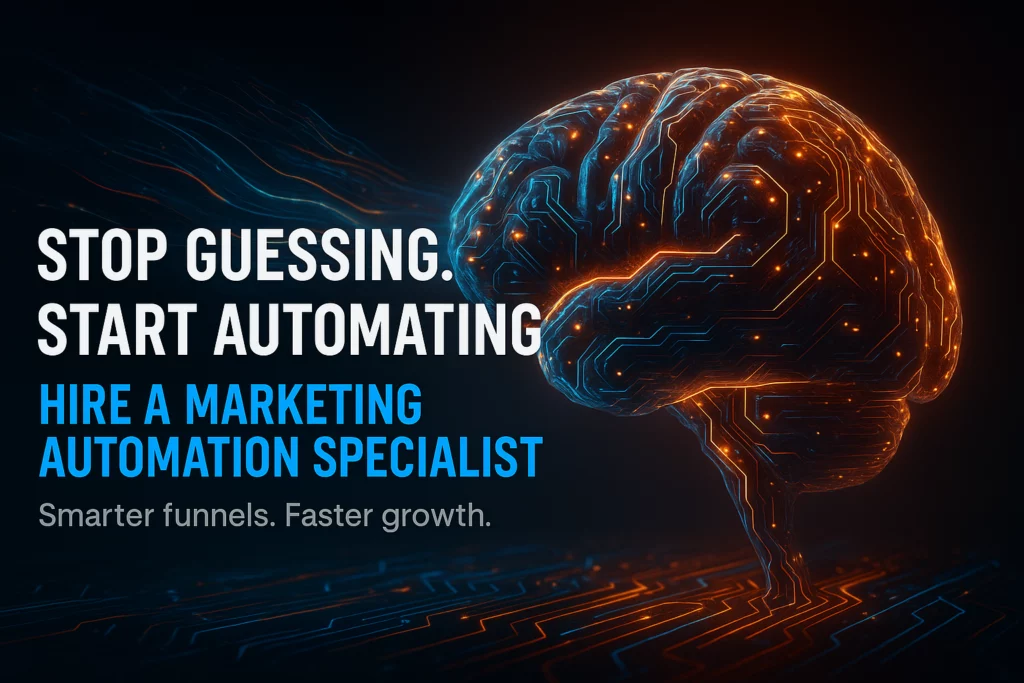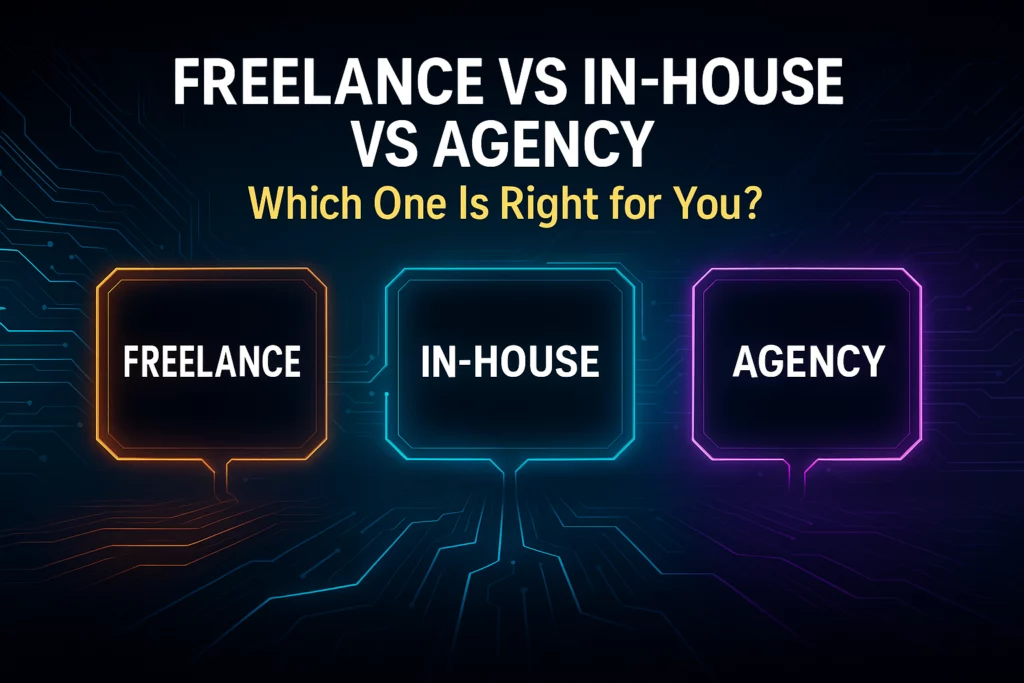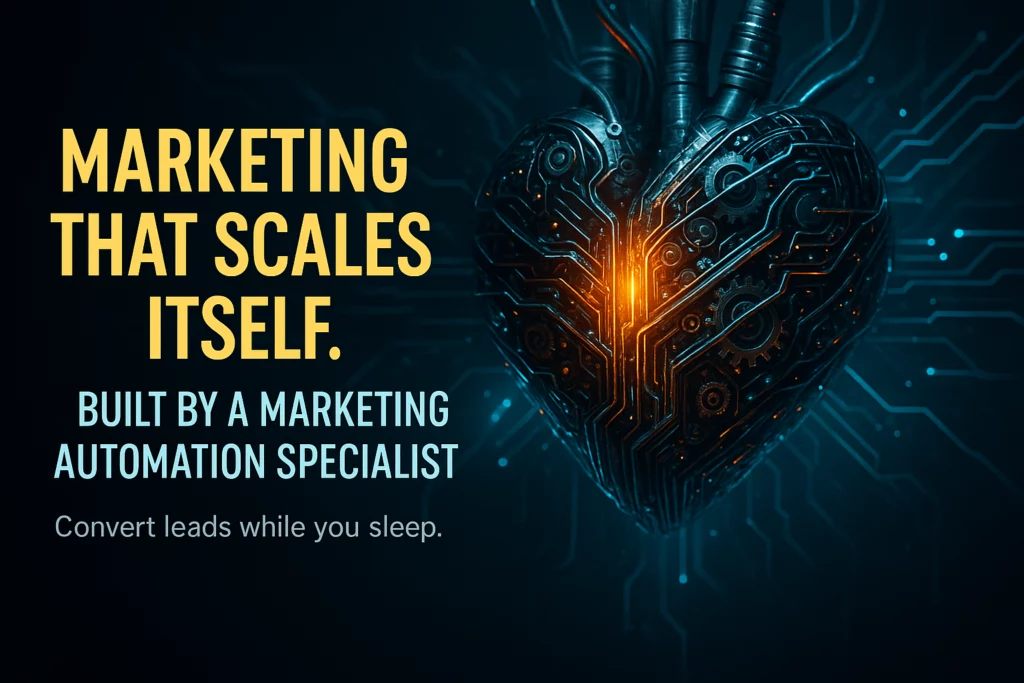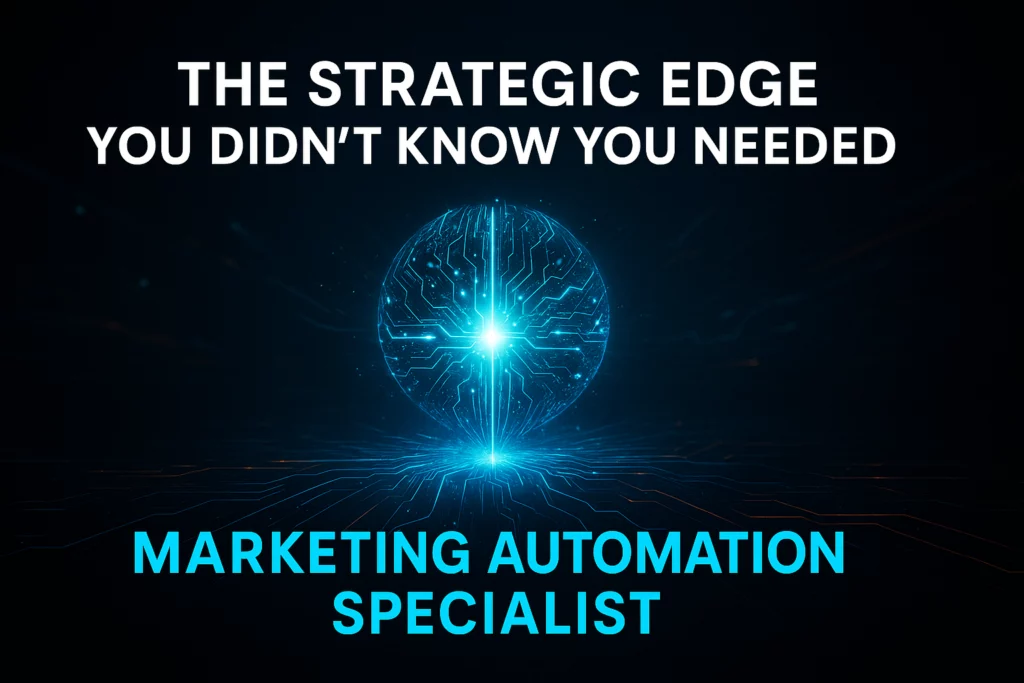Marketing Automation Specialist: The Unsung Hero Behind High-Converting Campaigns
Automation Isn’t Optional Anymore. It’s the New Standard.
Every business wants growth, right? But here’s the twist: growth today isn’t about hiring more people or throwing more money at ads. It’s about working smarter, not harder.
Enter the Marketing Automation Specialist.
This is the person behind the curtain, building systems that nurture leads, personalize communication, and free up your team’s time to focus on strategy instead of spreadsheets. Without one? You’re flying blind, wasting time, and leaving money on the table.
In this article, we’ll dive into what a marketing automation specialist really does, why their role is vital in 2025, and how hiring (or becoming) one can be the best commercial decision you make this year.

Why Content Marketing Is Broken (and How Agencies Fix It)
Most businesses today aren’t struggling because they lack ideas — they’re drowning in them.
What’s missing is:
- A clear strategy
- Cohesive messaging
- The ability to execute consistently
- A way to measure success beyond just “likes”
Content marketing agencies aren’t here to just create — they’re here to clarify. To unify the chaos into a plan. To turn “posting for the sake of posting” into content that serves a purpose.
Real-World Example: Saving a $50K Launch
One of our clients (a high-growth eCom brand) had a product launch that depended on a series of 7 emails, 3 SMS sequences, and 2 webinar reminders.
The day before launch, their email flows weren’t triggering due to an API mismatch.
Panic set in. The entire campaign, weeks in the making, was at risk of collapsing hours before go-time. The team was scrambling, support tickets were flying, and internal Slack channels lit up with stress.
- $57,000 in launch-day revenue
- 0 missed emails
- 1 very happy founder
- 1 team that slept better that night
Freelance vs In-House vs Agency: What Makes Sense Commercially?

Every business is different. Here’s a breakdown:
Freelance Specialist
Flexibility First
- Best for: Small businesses, one-off projects
- Cost: $75–$150/hour
- Pros: Flexible, budget-friendly
- Cons: Limited availability, lack of long-term strategy
In-House Hire
Deep Ownership
- Best for: Growing brands with consistent automation needs
- Salary: $50K–$100K/year
- Pros: Deep product knowledge, quick implementation
- Cons: Hiring + onboarding time, ongoing costs
Specialist Agency
Scale Without Hiring
- Best for: Businesses scaling fast or with complex systems
- Cost: $2K–$10K/month
- Pros: Team of experts, plug-and-play execution
- Cons: Less internal knowledge, higher upfront investment
If you’re not sure what’s best, start small with freelance, prove ROI, then scale to in-house or agency.
Want to Become One? Here’s Your Career Roadmap
The demand for marketing automation specialists is exploding. As businesses rely more on personalized, automated communication, the need for professionals who can build and manage these systems is skyrocketing.
This career path is ideal for people who enjoy a mix of strategy, data, and technology—and the entry barrier is lower than you’d think. You don’t need a computer science degree, but you do need curiosity, persistence, and hands-on experience.
- Learn the platforms (start with ActiveCampaign or Hubspot)
- Take courses (e.g. Coursera, CXL, or Hubspot Academy)
- Get hands-on: build your own lead magnet funnel
- Specialize (eCom, SaaS, B2B, etc.)
- Showcase your work (GitHub, Notion, portfolio site)
- Apply or freelance on platforms like Toptal or Upwork
Most beginners land their first freelance gig within 3–6 months of focused learning and practice. Within a year, many transition into full-time roles or consistent freelance retainers.
- Entry-level (0–2 years): $40K–$60K/year or $30–$50/hour freelance
- Mid-level (2–5 years): $60K–$90K/year or $50–$100/hour freelance
- Senior (5+ years): $100K+/year or $100–$150/hour freelance
With demand rising and automation budgets growing, specialists who stay updated and deliver results can scale their income quickly.

FAQs: Key Questions About Marketing Automation Specialists
A marketing automation specialist is responsible for designing and managing automated workflows that nurture leads, engage users, and drive conversions. They build email campaigns, integrate CRMs with analytics tools, segment audiences, and ensure personalized communication flows at scale. They also monitor campaign performance, identify bottlenecks, and continuously optimize touchpoints to improve user experience and ROI. In many cases, they act as a bridge between marketing, sales, and tech teams to ensure seamless communication and execution across platforms.
Because they streamline your processes, reduce manual work, and unlock higher returns. Marketing teams are often overwhelmed by repetitive tasks. A specialist automates those tasks, brings clarity to customer data, and enables personalization at scale, making marketing more effective and efficient. They help ensure no lead falls through the cracks and allow teams to scale without scaling chaos. In a highly competitive market, this level of automation can be the edge that separates thriving brands from struggling ones.
Marketing automation specialists use a range of tools, including:
- CRM & Email platforms like Hubspot, Klaviyo, ActiveCampaign
- Integration tools like Zapier or Make.com
- Analytics tools like Google Analytics 4, Looker Studio, Mixpanel
- A/B testing platforms such as VWO, Convert, PostHog
- Customer Data Platforms like Segment or Bloomreach These tools help automate workflows and align marketing efforts with sales and customer success.
A great marketing automation specialist combines technical, strategic, and creative skills:
- Technical fluency (APIs, custom fields)
- Marketing know-how (funnels, lifecycle campaigns)
- Analytical thinking (reading and acting on data)
- Copywriting instincts (email subject lines that get opened)
Curiosity and adaptability (keeping up with tools and trends) They are hybrid professionals who understand both systems and people.
The ROI can be massive. With the right automation flows, companies often see:
- 15–30% lift in email revenue
- 25% more qualified leads
- Reduced lead response time
Increased customer lifetime value Not hiring one often results in missed revenue, inefficiencies, and team burnout.
It depends on your business size, growth stage, and needs:
- Freelancers are great for quick wins and lower budgets.
- In-house specialists work best for sustained efforts and internal alignment.
- Agencies are ideal if you need rapid scale, deep expertise, or full-service execution. Start with freelance if unsure, and scale up as your needs grow.
Start by mastering one or two platforms like Hubspot or ActiveCampaign. Enroll in relevant courses (e.g. CXL, Hubspot Academy), build your own projects, and gain practical experience. Choose a niche (e.g. SaaS, eCommerce), build a strong portfolio, and apply via freelance platforms or directly to companies. Don’t be afraid to start small—many specialists begin by automating internal processes for their own business or side projects. Networking in communities and showing up consistently with value-driven work can fast-track your credibility and open doors to paid opportunities.
The Strategic Weapon Your Business Didn’t Know It Needed
In a world where attention spans are shrinking and customer journeys are increasingly complex, a marketing automation specialist is your secret weapon.
They turn chaos into systems, visitors into leads, and leads into loyal customers — all on autopilot.
If you’re serious about scaling profitably, make this hire (or become one). Your future self will thank you.
Need help getting started?
At Mass-Data, we connect growth-focused businesses with expert automation specialists and build systems that convert — so you can scale smarter, not harder.
